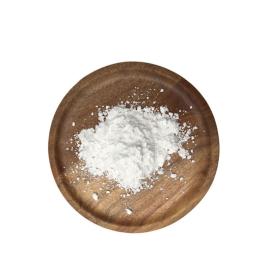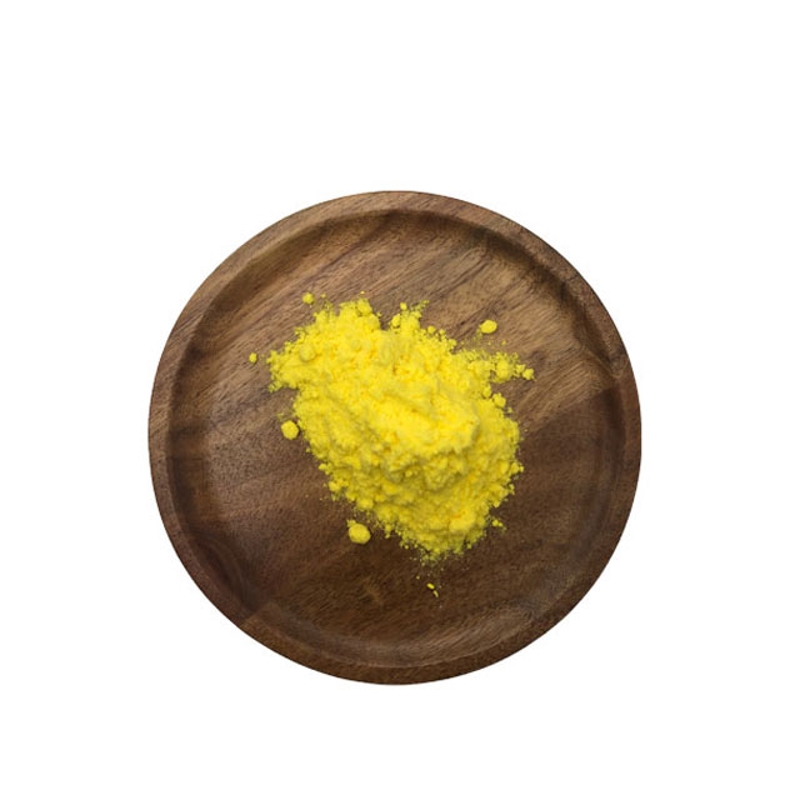-
Categories
-
Pharmaceutical Intermediates
-
Active Pharmaceutical Ingredients
-
Food Additives
- Industrial Coatings
- Agrochemicals
- Dyes and Pigments
- Surfactant
- Flavors and Fragrances
- Chemical Reagents
- Catalyst and Auxiliary
- Natural Products
- Inorganic Chemistry
-
Organic Chemistry
-
Biochemical Engineering
- Analytical Chemistry
- Cosmetic Ingredient
-
Pharmaceutical Intermediates
Promotion
ECHEMI Mall
Wholesale
Weekly Price
Exhibition
News
-
Trade Service
October 17, 2020 // -- BMS recently announced that the European Medicines Agency (EMA) Commission on Human Pharmaceutical Products (CHMP) has issued a positive review recommending approval of anti-P D-1 therapy Opdivo (Odivo, generic name: nivolumab, Navuliyu monoanti) A new adaptive disorder used to treat adult patients with non-excisive, late, relapsed or metastatic esophageal squamous cell carcinoma (ESCC) who previously underwent a combination of fluorine and platinum-based chemotherapy.
CHMP opinion is the final step in the marketing authorization process before obtaining approval from the European Commission (EC).
, CHMP's comments will now be submitted to the EC for review, which usually takes CHMP's advice and makes a final review decision within 2 months.
February and June this year, Opdivo was approved in Japan and the United States, respectively, and has so far been approved in five countries for second-line treatment in non-excisive, advanced, relapsed or metastasis ESCC patients.
particular note that Opdivo is the first tumor immunotherapy approved for use in the above-mentioned ESCC patient population, regardless of PD-L1 expression level.
clinical data show that Opdivo significantly extends total lifetime compared to chemotherapy, and that the benefit does not depend on PD-L1 expression.
patients with advanced ESCC have poor prognostication and very limited treatment options.
Opdivo will provide ESCC patients with an important second-line treatment option that extends survival while improving quality of life.
positive opinion of CHMP, based on the results of the Phase III ATTRACTION-3 (ONO-4538-24/CA209-473; NCT02569242) study.
data show that Opdivo showed better total lifetime (OS) results (HR-0.77; 95% CI:0.62-0.96; p-0.0189) compared to yew-algen chemotherapy (the researchers chose dosi yew alcohol or yew alcohol).
OS was 8.4 months (95%CI:7.2-9.9) in the esother chemotherapy group, while the mid-OS in the Opdivo treatment group was 10.9 months (95% CI:9.2-13.3), regardless of PD-L1 expression level. "CHMP's positive comments underscore Optivo's potential in the treatment of esophageal squamous cell carcinoma (ESCC) in the European Union, and the ATTRACTION-3 trial demonstrates clinically significant survival and good safety," said Dr. Ian M. Waxman, M.D., Director of Gastrointestinal Tumor Development at
ESP.
we look forward to the final decision of the European Commission, which could mark the first time the EU has approved immunotherapy for any upper digestive tract cancer.
we remain committed to continuing to explore the potential benefits of Opdivo in the treatment of early esophageal cancer.
"ATTRACTION-3 is a multi-center, randomized, open-label, global study that assessed the efficacy and safety of Opdivo relative to chemotherapy (docetaxel or yew alcohol) in patients with non-removable late-stage or recurring non-removable therapies with a combination of first-line fluorine and platinum drugs.
were admitted to the group mainly in Asia, where up to 96% of patients in the two treatment groups were from Asia.
, patients are treated until the disease worsens or is unacceptable for toxicity.
end point of the study was total lifetime (OS), and secondary endpoints included total mitigation rate (ORR), progress-free lifetime (PFS), disease control rate (DCR), mitigation duration (DOR), and safety assessed by investigators.
the study was sponsored by Ono Pharma, an Opdivo partner at Pershing.
results showed that the study reached the main end point of OS: Opdivo's treatment group OS showed a significant improvement in statistical significance and a 23% reduction in death risk compared to the chemotherapy group (HR=0.77,95% CI:0.62-0.96, p=0.) 0189), the mid-OS extended by 2.5 months (10.9 months (95% CI: 9.2-13.3) vs 8.4 months (95% CI: 7.2-9.9) ).
12- and 18-month survival rates (OS rates) were 47% (95% CI:40-54) and 31% (95% CI:24-37), respectively, in the Opdivo treatment group (95% CI: 28-41) and 21% (95% CI:15-27).
the survival benefits of Opdivo regardless of tumor PD-L1 expression level.
exploratory analysis of patient reporting results showed significant overall improvement in the quality of life of patients treated with Opdivo compared to chemotherapy.
orR, the Opdivo treatment group and the chemotherapy group were 19% (95% CI:14-26) and 22% (95% CI:15-29), respectively.
, however, the study showed that Opdivo significantly extended the duration of the medium remission compared to chemotherapy (DOR:6.9 months (95% CI: 5.4-11.1) vs 3.9 months (95% CI: 2.8-4.2).
at the end of the data, seven patients in the Opdivo treatment group remained in remission and two in the chemotherapy group.
no significant difference between the Opdivo treatment group and the chemotherapy group (HR=1.08 (95% CI: 0.87-1.34) in terms of non-progression lifetime (PFS).
, Opdivo's safety is consistent with previous studies in ESCC and other solid tumors.
less adverse events (TRAEs) associated with Opdivo treatment than chemotherapy, with a 60 percent chance of TREA at any level in Opdivo patients and 95 percent in chemotherapy patients.
Opdivo treatment group had a lower rate of level 3 or 4 TREA than the chemotherapy group (18% vs. 63%), and the proportion of patients who experienced TREA-caused drug suspension was the same in both groups (9%).
esophageal cancer is the seventh most common cancer in the world and the sixth leading cause of death.
of patients diagnosed with metastasis had a five-year relative survival rate of 8% or less.
two most common types of esophageal cancer are squamous cell carcinoma and adenocarcinoma, which account for about 90 and 10 percent of all esophageal cancer.
esophageal cancer (Photo: medindia.net) Estimates that 572,000 new cases are diagnosed each year and about 500,000 people die from esophageal cancer.
most cases are already terminally ill at the time of diagnosis and should affect the daily lives of patients, including their ability to eat.
the highest prevalence of esophageal cancer in Asia, with 444,000 cases diagnosed each year, accounting for 80 per cent of esophageal cancer cases worldwide.
it is worth mentioning that at the end of July 2019, the Mercedon PD-1 oncology immunotherapy Keytruda (Corida, generic name: pembrolizumab, Pabliju monoanti) was approved by the FDA to treat PD-L1 positive esother scaly In patients with cell carcinoma (ESCC), an FDA-approved test to determine tumor expression PD-L1 (combined positive score (CPS) ≥10), patients with relapsed, localized late stage, or metastatic ESCC progression after receiving one or more system therapies.
Keytruda is the first anti-PD-1 therapy approved for the treatment of patients with relapsed localized late stage or metastasis ESCC (tumor expression PD-L1, CPS≥10).
this approval is based on data from 2 clinical studies, KEYNOTE-181 (NCT02564263) and KEYNOTE-180 (NCT02559687).
data from the KEYNOTE-181 study showed that in patients with ESCC tumor expression PD-L1 (CPS≥10), Keytruda treated patients with OS improved compared to chemotherapy patients (medium OS: 10.3 months. 7.0-13.5' vs 6.7 months (95%CI: 4.8-8.6) and HR=0.64 (95% CI: 0.46-0.90) ).
ESCC patients with 35 tumor expression PD-L1 (CPS≥10) had ANR of 20% (95% CI: 8.0, 37.0), according to data from the KEYNOTE-180 study.
7 patients with remission, DOR ranged from 4.2 months to 25.1 plus months, 71% of patients (5 cases≥ DOR≥6 months, 57% of patients (3 cases≥ DOR≥12 months.
origin: Bristol Myers Squibb Receives Positive CHMP Opinion Opinion Recommending Opdivo (nivolumab) as Second-Line Treatment for Unresectable Advanced, Recurrent or Metastatic Esophageal Squamous Cell Carcinoma <!--/ewebeditor:page->







